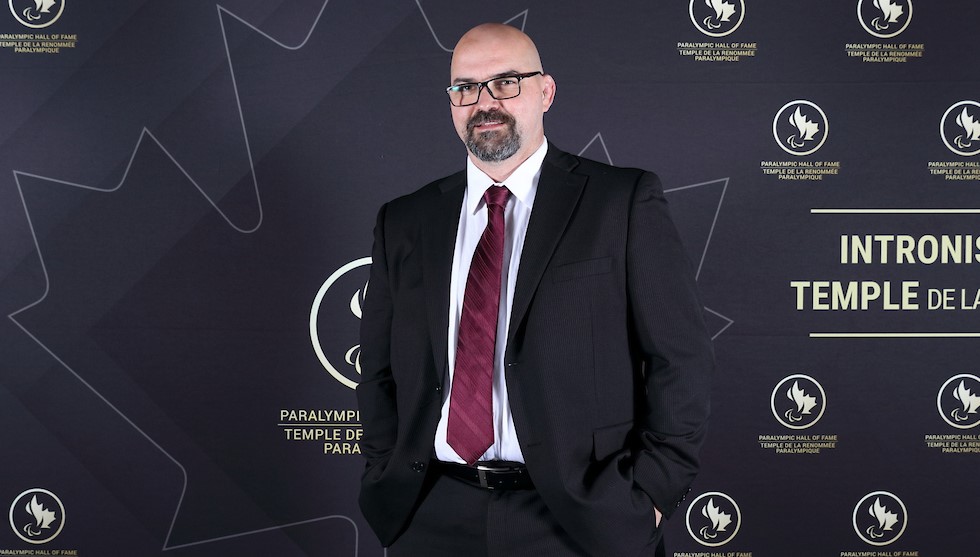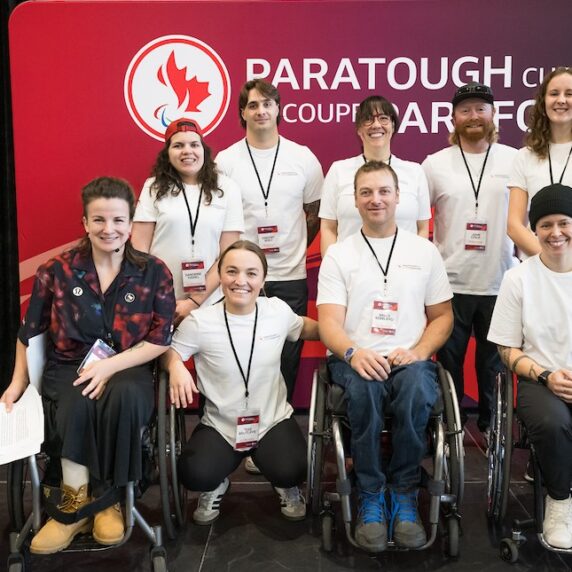National AccessAbility Week: Walby encouraged by progress but still long way to go
Can’t rest on accomplishments, says chair of Canadian Paralympic Athletes’ Council

Ever since he lost his vision at age 35, Tony Walby has dedicated his life to making the world a better place for people with disabilities, especially the visually impaired.
“AccessAbility Week is a great way to bring awareness to the public that there are still issues with accessibility,” said Walby, a two-time Paralympian in judo, now age 47. “We’ve come a long way in Canada with accessibility legislation but still have a long way to go.”
One instance the father of two children mentions is the improvements in accessibility standards in new buildings. However, for example, sometimes a new ramp can be too steep for some wheelchair users.
“On the infrastructure side a lot of government legislation is moving towards accessibility standards but not necessarily usability standards. Sometimes those accessibility accesses require too much strength for most wheelchair users,” said the chair of the Canadian Paralympic Athletes’ Council.
National AccessAbility Week, from May 30 to June 5, is a Government of Canada initiative to celebrate the accomplishments and contributions of people with a disability and bring awareness to the work still needed to be done to remove barriers and promote inclusion. This year’s theme is “Disability Inclusion 2021: Leaving No One Behind” which includes a focus on accessibility during the COVID-19 pandemic.
For visually impaired individuals, Walby says many streetlights, particularly in big cities, provide audible buttons for safe crossing and bumps on the edge of a sidewalk to warn nearness to the street. Braille is used much more prominently in buildings.
“It is getting better,” said Walby, who competed at the London 2012 and Rio 2016 Paralympic Games. “But is it where it should be with the technology we have today? Canada has really taken a step forward since the Accessible Canada Act was enacted in 2019. Are we there yet? No.”
“But the awareness is there and the determination and willingness to improve is always there.”
Walby works full time as a senior project officer and analyst at Correctional Services Canada in web accessibility and testing applications for web accessibility compliance. He has experienced the incredible improvements in technology that allow the visually impaired to use their phones, work on computers, and have access to the internet.
Still there are the occasional snags for Walby, even at work. But he says the desire is there for companies to adapt.
“I will never get on anybody’s case if something is not accessible, but I will if they have no intention to make it accessible,” said Walby, who has a degree in computer engineering from the University of Ottawa and has worked in IT for the last 23 years.
Walby feels fortunate that during the pandemic, he has been able to continue working from home and that he has a strong support system. His main pang is a desire to get on the mat with his pupils coaching judo as well as visit friends and family.
“We are able to do everything remotely and when we return, I expect I’ll be one of the last back to the office,” he said. “Because of my vision it is hard for me to socially distance on public transit for example. Health for everyone is a priority.”
As a Paralympian, Walby continues to impact the world of sport as well. He was elected chair of the Canadian Paralympic Athletes’ Council in December 2018 on a platform to continue to build the council’s influence in the Canadian sport system. He is currently seeking a spot on the IPC Athletes’ Council as well.
“The Paralympic Movement has done so much for me. It made me look hard at myself and to not wallow in such pity because I was losing my sight.”
It has also allowed him to continually advocate and be a voice for the rights of people with a disability.



"*" indicates required fields
"*" indicates required fields